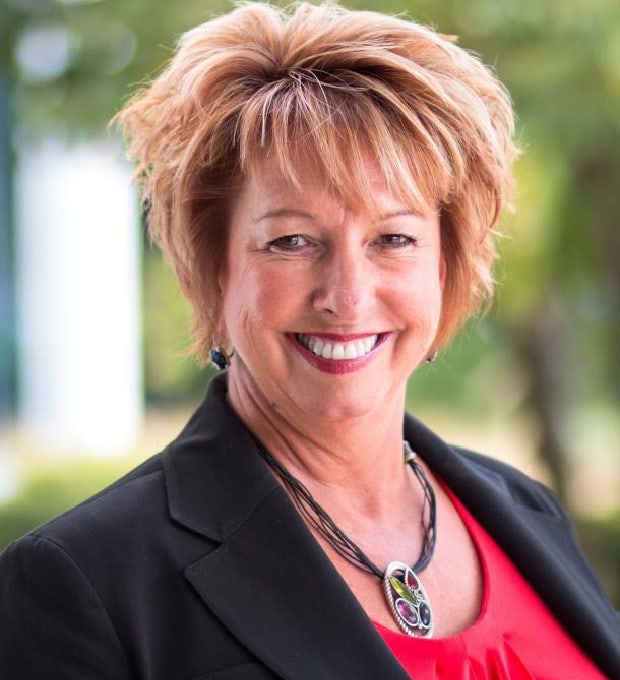72% Of Mothers Are Working Moms — So Why Aren’t Businesses Taking Better Care Of Them?
Working moms are in crisis.
 Getty
Getty Nothing can prepare you for parenthood. The first few months after welcoming a new addition can feel like swimming against the tide.
Yet, as mothers face increasing pressure to balance work and family life, it wouldn’t hurt for employers to throw new moms a lifeline from time to time.
And it doesn't necessarily get any easier as the kids get older. Bigger kids mean bigger issues, busier schedules, and more general complexity.
In 2020, over 2 million women left the workforce or were forced out due to the fallout of the Covid-19 pandemic. Pressure to balance financial concerns and domestic duties means women are often forced to shelf their career goals while employers stand by and offer little support.
While women’s progress in the workplace has been hurt by the pandemic, this is not a new phenomenon.
For decades, women pursuing careers have had to adapt to a workforce designed by and for men. Mothers are forced to make daily compromises in their family life to advance their careers — or to leave the workforce entirely.
In almost half of all US households, both parents are employed full time, yet employers continue to ignore the needs that will allow people to thrive both personally and professionally.
Working moms in the US are in crisis.
Without meaningful support for working mothers, women’s labor progress is built on unsteady foundations. This continues to make the workplace an uneven playing field that sways in favor of men.
To learn more about what can and should be done to protect working parents, we spoke with Melissa Gonzales, CEO of Medela, who was involved in the creation of New Moms’ Healthy Returns, an initiative calling on employers to open up the workplace for mothers.
 Photo: Melissa Gonzales
Photo: Melissa Gonzales
Gonzales wants to create actionable solutions that make returning to work stress-free and empowering for mothers and employers alike.
“Nearly 43% of new moms actually leave their jobs within three months of childbirth,” Gonzales tells us.
She says that all parents welcoming a newborn need unique supports that allow their family to thrive without having the opposite impact on their careers.
“Every mother must have time to recover from birth, bond with her baby, and establish breastfeeding without facing a loss of wages or other financial detriments.”
Gonzales has focused the NMHR initiative on creating clear guidelines for employers seeking to implement strategies that accommodate working parents.
“This includes parental leave, lactation support, and inclusivity initiatives,” she tells us. "Every workplace culture should be consciously inclusive of breastfeeding and new-parent employees.”
But this is about more than just what employers can do for their staff — helping mothers helps the companies, too.
Employers are turning their back on mothers at a cost to organizational success.
“Supporting working moms goes straight to the bottom line,” Gonzales tells us. “Racial and gender diversity is important to organizations, and a big part of achieving diversity is the hiring and retention of women.”
If employers want to attract top talent from the next and current generation of parents, they need to start considering how to better serve this group.
“Women and mothers are a growing segment of the employed population, and they bring diverse skills, views, and experiences that businesses need,” says Gonzales.
Through the standards NMHR sets, employers have a measurable way of showing their commitment to family and working mothers, much of which focuses on requirements around feeding spaces.
“These women also have unique needs and expectations for how their employers can help them successfully contribute to the organizations they join – including supporting their choices in how and when to feed their babies,” says Gonzales.
Breast-feeding and lactation spaces are some of the crucial ways employers can support new mothers.
“Four out of five working moms say their employers could better support breastfeeding parents, indicating there is a lot of room for improvement in lactation support and benefits,” says Gonzales.
Studies show that the pandemic has made women more committed than ever to breastfeeding, but 50% worry that their workplace does not have sanitary spaces to feed or pump.
“Every company must have a clearly defined lactation policy and benefits that help mothers meet their breastfeeding goals,” Gonzales insists. This may involve private lactation spaces, milk transporting services, and more.
A program like NMHR allows companies to create customized policies that support women at a crucial time in their lives.
But even if employer support is lacking, women must know that their demands are meaningful during this life stage.
Gonzales tells us that communication between employers and new parents is crucial to make amendments that work for both sides.
“Working mothers must advocate for themselves and other working parents by asking specific questions such as: is there a private space to pump, are there resources to help breastfeeding employees and are there solutions in place if I need to travel?”
“This provides the clarity needed by both employees and their employers to confirm existing benefits and policies, or identify gaps to close, that will ensure employees’ needs are met,” she says.
Employers should not only want to help mothers. They must also recognize that helping women is crucial to advancing their company and the economy as a whole.
Gonzales and the Medela team also just launched an initiative to make the return to work simple for breastfeeding moms. The #MedelaMailMyMilk initiative allows moms, especially those who travel for work, to ship their milk to their baby with ease.
To celebrate the launch, Medela is going to sponsor one mom every month, providing approximately 3 months of milk shipping through Milk Stork. Find out more about the competition and enter to win
Learn more about supporting breastfeeding rights and working parents with New Moms Healthy Returns.
Alice Kelly is a writer living in Brooklyn, New York. Catch her covering all things social justice, news, and entertainment.

